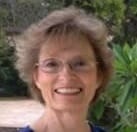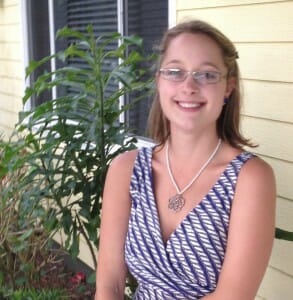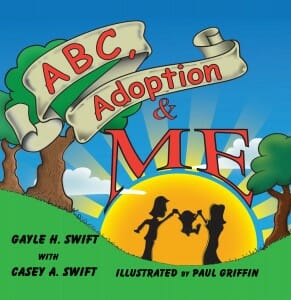
Parents and teachers often use picture books to introduce controversial or sensitive topics. Adults who are struggling with ways to open up dialogue with their adopted children, should consider reading Gayle and Casey Swift’s book ABC, Adoption and Me. Today, I am interviewing Gayle Swift. She will share her expertise as an adoptive parent, adoption coach and foster parent as well as information about her book.
Gayle sent me a book in exchange for this interview and an honest review. Gayle will be participating in a book giveaway. See below for details.
Welcome Gayle.
Parents who choose to adopt children face challenges that others do not encounter. As an adoptive parent, when did you decide to share the adoption with your children?
We began using the term adoption when our children were infants. This ensured that they were familiar with it long before they understood it.
What resources did you use to convey this fact?
We have always been a reading family, so we took advantage of the books available at the time. We also joined an adoptive family support group so our children could meet other children who were adopted. This helped all of us to feel part of a community.
What was the largest obstacle that you handled while discussing adoption with your children?
The largest obstacle was to present adoption as something done for their benefit and for which they were not at fault. Many adopted kids assume there was something about themselves that caused their birth parents to choose adoption for them. It was important for us to make clear that their adoption resulted from adult problems and issues that left the adult unable to parent. It had nothing to do with the children being unlovable or unwanted.
Is there any advice that you would be willing to share with adoptive parents?
Adoptive parents must develop a thorough understanding of the unique strategies of adoptive parenting which differ in some profound ways from parenting the kids born into our families. We call it growing a high “AQ” (Adoption-attuned Intelligence.)
Remember, while adoption is the fulfillment of our dreams, it is rooted in genuine and significant loss for our children. The greatest and most loving gift adoptive parents can bestow on their children is to signal adoption is an “open” topic. This includes not just the cozy parts but also the “I-feel-mixed-up-ashamed-and-conflicted parts too. Parents want to become that safe harbor to which kids can retreat while they weather any stormy times in their lives.
In the absence of this openness, kids often remain silent and struggle without the support of their parents. Many adopted kids fear that they might do or say something that might trigger their removal again. Remember, they are only kids. They tend to generalize from small pieces of incomplete information. And usually they blame themselves long before they blame their birth parents or their adoptive parents.
Your bio mentions that you are a cofounder of GIFT (Growing Intentional Families Together. Can you briefly describe what services this organization provides?
Grounded in the belief that a safe, loving family is the gift of a lifetime, we formed Growing Intentional Families Together (GIFT) to make adoption a smoother and gentler experience for adoptees and the families who love them. GIFT is a full service firm providing support services to adoption/foster families before, during and after adoption. Not only are we all adoptive parents, we are all certified coaches as well. Combining our own adoptive family experiences with our professional training enables us to listen without judgment, empathize, and then strategize effective solutions. Coaching focuses on action steps to move families forward through difficulty and to the successful completion of their family Purpose.
Why did you decide to write ABC Adoption & Me?
We had a clear purpose: to write a book that voices the adopted child’s experiences. Most books focus on the joy parents experience through adoption and on reassuring adoptees how much they are loved.
There’s another very important part to the adoption experience: living it as a child. Adoptees must learn how to blend their two birth and adoptive identities into a healthy whole, one that recognized the validity of each.
Finally, nowadays families come in many configurations—step families, families raised by grand-parents, single parent families, gay and lesbian families, foster families and adoptive families. We have more similarities than differences. By recognizing that and by exploring our differences, we develop empathy, reduce ignorance, and increase tolerance.

Award-Winning Author
Your co-author is your adopted daughter, Casey. How did her insight as an adopted child affect the content of the book?
My insight changed. The biggest change of mind that I had was learning that other people go through very similar emotions. Growing up I always felt so alone. Writing this book will hopefully open up a lot of channels of communication. It is really important to me to help kids feel more comfortable with their adoptions. I went through many stages from gratefulness to anger to devastation and if kids can feel normal about that, they will be more open to accepting things are what they are for a reason.
Does Casey have any advice that she would be willing to share with children who are coming to terms with their adoption?
Advice: don’t bottle it up. Share all your questions and concerns with someone you trust. You may think you are alone in your feelings when in reality many others feel the same way. I always tended to make friends with other girls that were adopted. It seemed like a coincidence at first but then seemed to follow a pattern after a while. My mom has always been my best support system but if she didn’t know what was going on with me she never would have been able to help me through my tough times.
By using an ABC format, you are gearing your book to a preschool and/or early reader audience. Is there a particular reason that you chose this age group? Is this the best time period to inform a child about their adoption?
Using the ABC format casts adoption is just another basic part of growing up for adoptees. Kids learn their ABCs and they learn what it means to be adopted. It provides a simple way of organizing very important facts from an adoptees life. Plus, it makes the conversation feel approachable and non-threatening. On the surface, it appears that ABC is only for little ones. Actually, the concepts explored can be revisited with deeper understanding as kids get older. For example, “B is for bellybutton,” sounds basic. It sets the ground work for when kids get older it leads to discussions of how babies grow inside their birthmothers—a much more sensitive and mature conversation.
Interestingly, we’ve had kids as old as sixteen, as well as adult adoptees say that it helped put their feelings into words. This assisted them in having powerful conversations with their families.
Are you considering writing any other books with an adoption focus?
Yes, we are working on a book targeting tweens. Written as a graphic novel, it will handle the same concepts but at a level more appropriate to slightly older kids. It will blend facts with humor.
How does your book compare to the other adoption books currently on the market?
I believe the child oriented point of view makes ABC, Adoption & Me unique. The multicultural illustrations also clearly embrace the gamut of families, not just Caucasian, Hispanic, or Afro-American. It is firmly grounded in respect for the child, birth parents and adoptive family and it validates all of the child’s feelings, celebrates his adoption blessings, and acknowledges his adoption losses.
Your illustrations resemble the images found in colored comics in Sunday’s paper. How does this style complement the message of your book?
While the material is serious, our attitude is upbeat. It says, here are the facts and they don’t have to be scary but they should be explored with the whole family.
Gayle, is there anything else that you would like to share with my audience?
As the adage says, “It takes a village to raise a child.” This is especially true for adoptive families. Although we formed our families differently from yours, we love as deeply and permanently and our kids were very much wanted. Our parenting techniques may differ but we appreciate your understanding and support.
If you still have questions about adoption, remember to be mindful of our children’s feelings. Many of the typical questions we receive are only appropriate for adult discussion.
Book Awards:
- Favorite Read of 2013- Adoptive Families Magazine
- Notable Picture Book for 2013- Shelf Unbound
- Honorable Mention- Gittle 2013 List.
- Four Royal Palm Literary Awards
Book Giveaway
Anyone who leaves a comment on this blog by Sunday, June 15 will be eligible for a book giveaway. The randomly selected winner will be sent an autographed copy of ABC, Adoption & Me.
Related Blogs:
Q & A with Ruth Tenzer Feldman
Q & A With Laura DeBruce, Author of The Riddle of Prague
Q & A With Frank Nappi, Mickey Tussler Series
Sandra’s Bio

Leave a Reply
You must be logged in to post a comment.